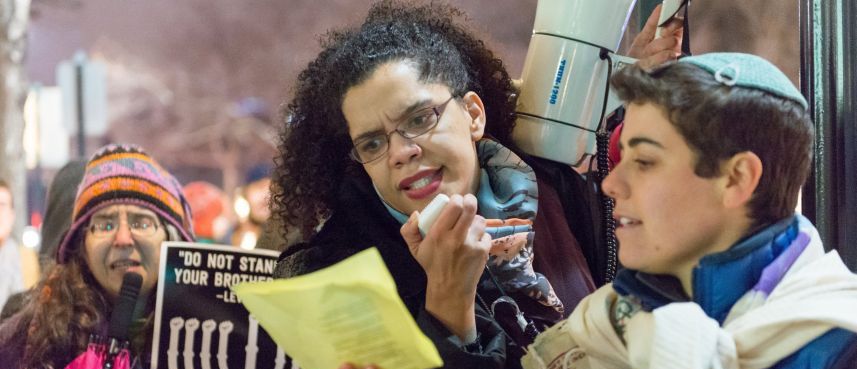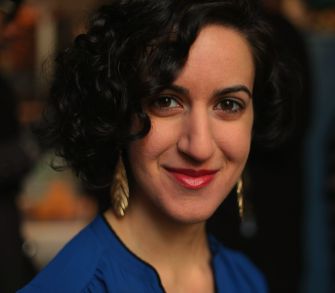Meet April Baskin, the Multiracial Face of Reform JudaismPosted in Articles, Judaism, Media Archive, Religion, United States on 2015-11-30 01:57Z by Steven |
Meet April Baskin, the Multiracial Face of Reform Judaism
Forward
2015-11-28
Allison Kaplan Sommer (Haaretz)
See also: “Black and Jewish: New Reform Leader Works to Bring Marginalized Groups Into the Tribe” on 2015-11-25 from Haaretz.
To meet April Baskin is to see the change in American Jewry personified. A tall, confident, 32-year-old with an impressive mane of curly hair and a wide smile, the self-described “multiracial Jewish woman of color” is the newest executive in the Reform Jewry movement.
Her offbeat job title—vice president for audacious hospitality—incorporates the catchphrase that the Union for Reform Judaism has embraced as its central mission. It is meant both to include aggressively welcoming newcomers into its institutions, along with widening its tent by inviting groups that have traditionally felt marginalized from mainstream Jewish institutional life – this includes interfaith couples and families, as well as adults who grew up in interfaith homes, LGBT Jews, Jews with disabilities, unaffiliated Jews and multiracial Jews like herself. “The Jewish community has been by and large marginalizing these groups and put them on the back burner if they have even been on the stove at all,” she says.
Her job is to put these groups front and center. Baskin sums up the philosophy with which she is approaching her admittedly “enormous portfolio”: “It is the belief that we will be a stronger Jewish community when we welcome and incorporate the diversity that is the reality and future of Jewish life.” Since unaffiliated Generation X and millennials are another important target for her outreach work, her young age is an advantage, rather than an obstacle.
…It is language, however, that Baskin’s family hasn’t really been able to avoid. She was raised in a Jewish home by her Ashkenazi mother and African-American father. Early on, they regularly received questions about “what” she was, and thus sought out the expertise of a psychology professor, who recommended they tell Baskin she was “multiracial and Jewish.” The couple raised April and her brother in Sacramento, California “enmeshed in Jewish life” complete with a close-knit Reform congregation and Reform Jewish summer camp…
Read the entire article here.

